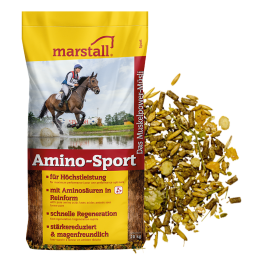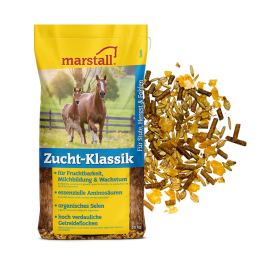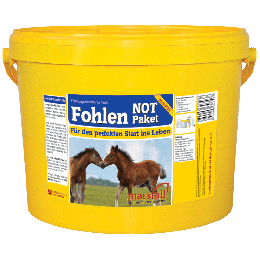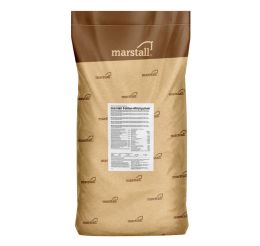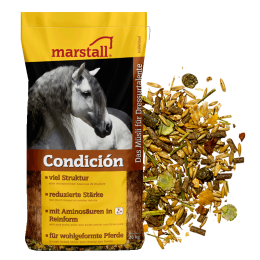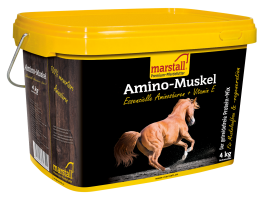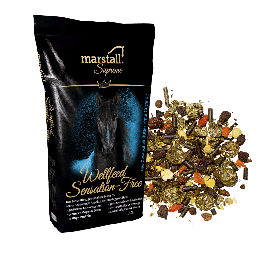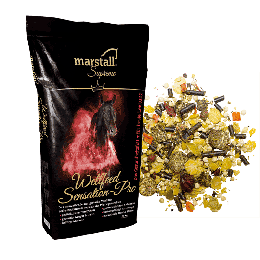Glossary
Amino acids
Amino acids are the building blocks of proteins. Many of the 20 known amino acids can be produced by horses themselves. Some have to be added to the feed. These are called essential amino acids. These are lysine, methionine/cysteine*, tryptophan, leucine, isoleucine, threonine, valine, histidine, arginine and phenylalanine. All of these are important for the development of the muscles. But also healthy, stable keratin in mane and hooves, the milk production of the mare, foal growth, hormone functions, energy supply at peak performance, etc. are directly dependent on the sufficient availability of essential amino acids. The horse must absorb sufficient essential amino acids directly from the feed in the small intestine in order to meet its needs. Essential amino acids are contained in many foods, e.g. hay, grass, brewer's yeast, soya flakes, soya extraction meal, rapeseed extraction meal, etc. The horse's intestine must contain sufficient amounts of essential amino acids directly from the feed to meet its requirements. The more such essential amino acids they contain and the more digestible they are, the higher the quality of the feed as a protein carrier. However, the digestibility of the essential amino acids differs greatly from horse to horse. The essential amino acids from normal hay from the late or supernatant 1st cut, for example, are very difficult to digest. As a result, they are only available to the horse in small amounts or not at all. The opposite of these are pure, crystalline essential amino acids. They are already present in the form of individual amino acids and do not have to be digested in the intestine first. If they are added to the muesli (usually contained in the pellet), they can be absorbed immediately in the intestine and are 100% available to the horse. Whether such pure amino acid additives are contained, one can recognize on the feed bag by the special spelling: L-lysine, L-threonine, DL-methionine, L-valine etc.
*Cysteine can be produced from methionine, but is not considered essential per se. However, since the insufficient supply of cysteine leads to methionine deficiency, the demand for both sulphur-containing amino acids (SAS) is stated together (Met+Cys).

